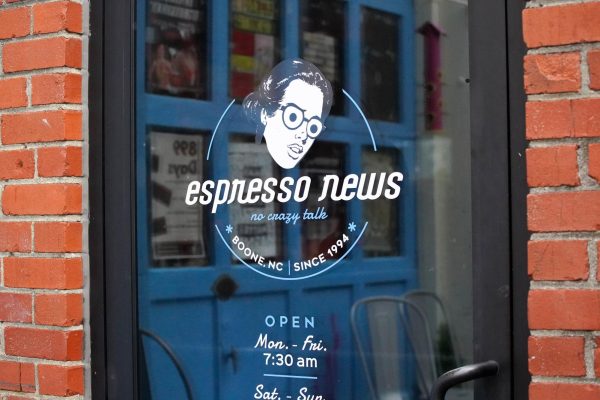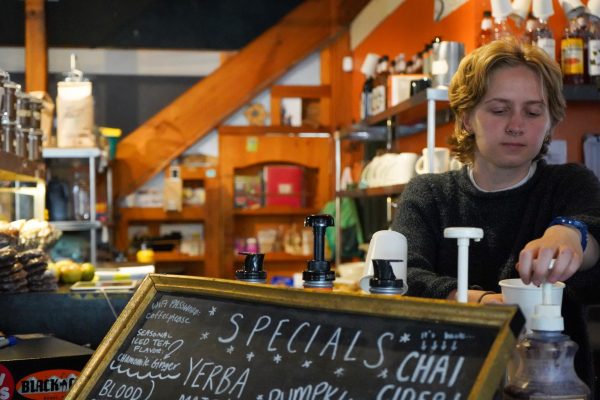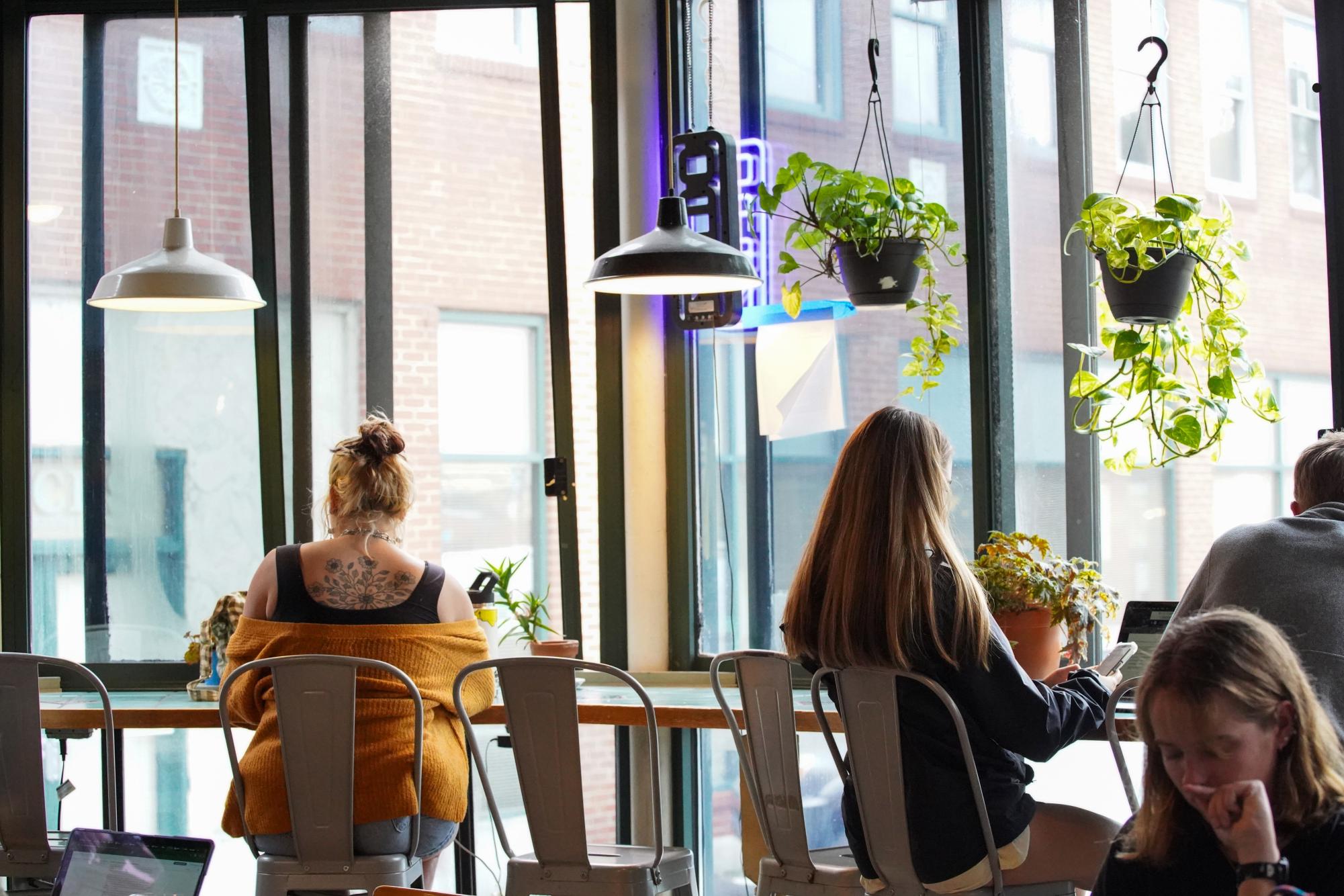Over 30 years ago, one would walk into the small building on Howard Street and smell the rubber of tires and see cars and other equipment for sale. Today, people walk into that same building, smell the aroma of coffee grounds, ask for a white chocolate mocha and sit down at the same table someone sat at decades before them.
What originally started as Espresso News and Mosaic Books in October of 1994, founded by Mark DeBroder and Teresa Webb, now celebrates its 30th anniversary this October as Espresso News.
The building, which is about 90 years old, was originally home to Winkler Motor Co., where Ford Tractors were displayed in the windows.
Once the original owners of Espresso News obtained the building, guests could walk in and be met with the black and white checkered-tiled floor, newspapers and over 450 magazines available for customers to read or purchase. Back then, a small cup of coffee was 94 cents and a large was $1.27 — refills were also free.

Uijin Park is the owner of Espresso News. He first stepped foot into the shop in 1994 and started working as a barista in 1997 after one of the former owners noticed him seated and asked if he wanted a job. He never planned on becoming the owner of the coffee shop, as at the time he envisioned himself going to grad school for art. How he became the owner, however, is something Park describes as “bittersweet.”
In 2001, DeBroder was diagnosed with cancer and was given a year to live. Before DeBroder’s passing in 2003 and with no experience in the business world, Park offered to keep DeBroder’s legacy going, saying the coffee shop was DeBroder’s baby.
“He was about to lose everything, and that’s a hard place to meet,” Park said. “But I wanted to keep it going. And it’s been awesome in that sense of being able to keep his vision and dream going.”
Since Park took ownership of the shop, Espresso News looks a bit different from what it did in the 1990s. The floors are no longer black and white checkered, new windows were installed and the magazines and newspapers aren’t sold there anymore as Park said the store lost money by keeping them. Additionally, the shop did not offer events such as live music back then, something Park said they organize and are open to today.
In the early 2010s Park turned the upstairs of the shop into a wine bar called Low, where guests could go to have a glass of wine or a beer and have a “chill spot.” However, after a few years Low was removed and it turned into another seating area.
Although Park said the first 10 years of running the shop were hard, in the end, it has become much more than a shop.
“This is my home,” Park said. “If I get in the car, I will always drive here.”
Today the upstairs of the shop is now closed off as it is being turned into an apartment for Park and his family.
“That’s how much I love this place that I’m going to live here,” Park said. “And people are like, ‘Oh you’re going to be at work,’ and I’m like, ‘Dude that’s going to be awesome!’”

Despite some of the physical changes, some things within the shop have remained the same since its opening.
Some of the tables people sit at in the shop today were made by DeBroder and have been there since the store’s opening. Additionally, Park said he’s kept DeBroder’s vision alive by continuing to have everything handcrafted from roasting the coffee in-store to making the pastries from scratch.
“None of those things I wanted to change,” Park said. “I was like, ‘That’s great. That’s what we want to do.’”
Another aspect Park has aimed to keep the same is how employees are treated. He said DeBroder “treated you like a human at all times,” an idea Park stands by and said everyone, including himself, is friends with everyone.
He said most employees work at the shop for a minimum of four years to a decade, and he attributes the low turnover rate to a positive working environment.
One employee who worked at the shop for a decade, Brian Knox, even created the iconic logo found on E-News’ merchandise and windows: the image of a woman with glasses. Park said who that is will always remain a mystery, but he believes it is a combination of facial features of the staff at the time.
“It’s no one but all of us,” Park said.
Those who have come and gone and the general flavors of choice have also changed a bit, as DeBroder told The Appalachian in 1995, “We appeal generally to an older crowd.” At that point, the menu was focused on drip coffee and lattes, but today it features a variety of drinks with different flavors and fun designs.
“We feel good when someone smiles at a cup of coffee,” Park said.
Espresso News has become a hub for everyone, from students, faculty and staff to locals and tourists. Even Park’s own children can be seen around the shop, something they consider a community, which Park describes as his favorite part about the shop.
“It is definitely like a big family of people that support each other,” Park said.
Although prices for a cup of coffee have changed over the past 30 years too, with each bean roasted and each drink served with a pretty design, Espresso News has always made it a point to have quality over quantity, and they believe in people over profit.
“It’s not the coffee,” Park said. “It’s the people.”


